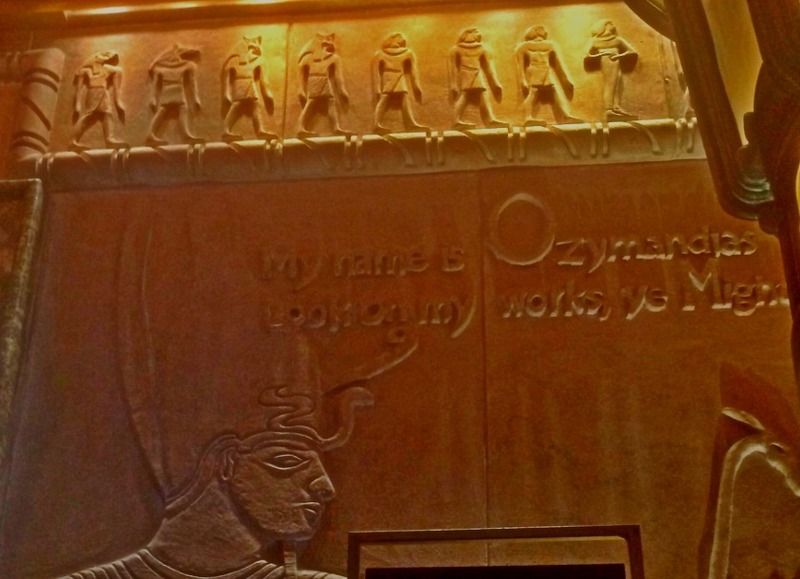MY STAB AT POLITICAL COMMENTARY came many years ago when, in a meeting with Ken
Livingstone in the then new, gleaming, south-leaning City Hall, I made this very
perceptive remark. "Mr Livingstone, aren't you the person made famous by
Private Eye magazine as Dave Spart?"
His reply
was a rather bemused look.
But I must
tell you about City Hall the new, a gleaming building as I said because it is
made of shimmering glass, is shaped like a misbehaving boiled egg and leans towards Borough
Market. Ken Livingstone was its first occupant after a long absence, the
absence being caused by Mrs Thatcher's petulance when faced with the taunts of
Ken the Red (another moniker given him by the London press). When Mag the Thatch reigned as
PM, she had to look daily at the old County Hall building just across the river
from Parliament to see banners that proclaimed things such as the number of
unemployed in Britain
and so on. So one day, peeved and her iron body sizzling hot, she went to
Parliament and got the government of London
abolished.
Ken was sent
into the wilderness for a long time.
It was at
the turn of the new millennium that they decided to revive London's
government, so they built the new leaning legislative building on the riverbank
with a view of the Tower
of London and a
magnificent office block owned by the property acquiring section of our dear EPF.
Ken was returned home again by London's
voters to be their Mayor for two terms until he was trounced by another bloke.
Two Fridays
ago, I was gadding about in a little district when the pavement before me
was suddenly blocked by men and women in a scrum formation. As I approached
them I saw the blondie Boris Johnson talking into many microphones. This was,
to remind you, election week. So I took another stab at my long forgotten art:
"Boris," I said. "You're violating local by-laws. You're
blocking the pavement."
Boris was
the other bloke above who trounced Ken in the votes, and he is still, now, in
office. As great grandson of an Ottoman Turk, he is used to being heckled by
the crowd so he studiously ignored me and continued to pontificate. He could
not though, in this day and age, send my head to the block.
Boris, as
is well known, does not need microphones to make himself heard but this time he
was talking to the media so he had to pour his spiel into various mikes. Once,
as writer for the Spectator magazine, he became an irritant to various learned
and erudite writers there gathered in the Staggers' Library with his very loud
telephone talk coming in from the corridor outside. When he finished, someone
asked him what that din was all about. "Oh," Boris said, "I was
talking to New York."
"With
your voice Boris, you don't need a telephone to speak to them," replied
one wag.
What I
meant to tell you is that even though Boris ignored me on the pavement, he really
did not. Last night, just three days after the general election (where Boris
came in as MP from a safe seat) he came back to me in a dream. For some reason
I was involved in an invite for him to speak to a crowd and as dreams are the
most bizarre events in your sleeping life, there he was, standing patiently
before me as I was washing my hand from water that was spouting from an
overhanging pipe.
"Ok,"
he seemed to be saying to me. "You can do that, I'll wait."
"No
Boris," I said, "You don't have to, this isn't a ritual."
"This
isn't a ritual?" he replied. And then he went for a walkabout, during the
course of which many people asked him to pose for photographs. So he walked jauntily
as they snapped. And then he turned back and smiled. Perhaps a signal to me to
say, "See? I can do that whenever I like."
Note: The Mayor of London is not the Lord Mayor of London, of which more later.
PHOTO: The new City Hall building on the bank of the Thames with Tower Bridge spanning the tide.



